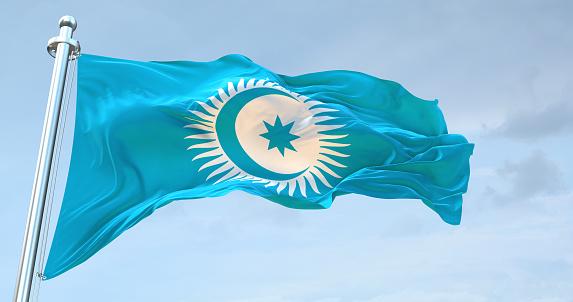Expanding into global markets under unified brand Made in Turan
In recent years, Azerbaijan Export and Investment Promotion Agency (AZPROMO) and the Small and Medium Business Development Agency (KOBIA) have made significant strides in diversifying the country’s agricultural and industrial exports to new markets. Efforts have also intensified to promote non-oil products abroad under the "Made in Azerbaijan" brand, leveraging e-commerce tools in the Business-to-Business (B2B) sector. A key platform in this initiative is the Azexport.az portal. Today, e-commerce is seen as a central pillar of foreign trade, and the growth of this sector was highlighted at the recent "Turan E-Commerce and E-Export Forum" held in Baku.
As part of its trade diversification policy over the past seven years, Azerbaijan's Ministry of Economy, along with its relevant agencies—AZPROMO and KOBIA, and through its trade representations—has organized numerous presentations and seminars. These initiatives also include the participation of domestic companies and SMEs in international exhibitions and forums. To streamline these efforts in priority markets, nearly two dozen Azerbaijani trade and wine houses have been established.
Alongside post-Soviet countries, key markets now include China, Eastern Europe, the Gulf States, the Middle East, and North Africa. At the same time, the online trade segment has been strengthened: state portals, government agency websites, and business associations now feature an electronic database of Azerbaijani export companies, their products, and services. The ultimate goal of these efforts is to promote and advertise products under the national brand "Made in Azerbaijan," with future plans to expand this initiative through the recently developed sub-brand "Made in Karabakh – Heart of Azerbaijan."
Azerbaijan is home to the country’s largest digital trade operator within the B2B format—the Azexport.az portal. Created by the Center for Analysis of Economic Reforms and Communications (CAERC), this platform promotes the products of Azerbaijan’s industrial and agricultural sectors on the global market. Through Azexport.az, Azerbaijani products are sold in 145 countries and the portal is integrated with more than 15 international e-commerce platforms, including major global portals such as Amazon and eBay.
Similar structures have been established with the support of other government agencies: the Ministry of Agriculture has launched an electronic platform for digital trade and public procurement, while KOBIA has developed an online trade portal, www.kobmarket.az, which includes an export component. These efforts demonstrate that Azerbaijan has successfully established effective export support mechanisms with a digital component.

The achievements in this field, the development of export preferences, as well as the prospects for the growth of the e-commerce segment and the promotion of national brands on international markets, were the focus of the "Turan E-Commerce and E-Export Forum," organized for the first time in the country through the joint efforts of Founder Club and the Azerbaijan Franchising Association.
“Azerbaijan has a strong economic foundation, a vibrant trade environment, and is developing dynamically. It is expected that the local e-commerce market will reach $2 billion this year and grow annually by 13% until 2030,” noted Irem Çağrı Yılandil, Head of International Expansion at Trendyol Group, during the forum. The Trendyol representative also emphasized that the company is actively operating in the Azerbaijani market and is ready to invest, share expertise, and grow alongside customers and business partners.
The development of e-commerce, particularly its export direction, is also supported by the efforts of the Central Bank of Azerbaijan (CBA), which is advancing a digitalization strategy for the financial sector aimed at increasing the transparency of the local payment market and attracting international vendors and financial-tech organizations (FinTech). As part of this strategy, the "roadmap" project for open banking (OpenBanking) is being implemented. It is worth noting that the advantages of Open API/OpenBanking tools are particularly appealing to the business community, including those engaged in import-export operations. Today, there is a global shift toward electronic payments and digital trade contracts, with mobile and e-banking services being widely used to save time and money while optimizing business processes.
"One of the key priorities of the Central Bank of Azerbaijan (CBA) is the protection of market participants' rights, ensuring equal conditions, and creating a healthy competitive environment in the domestic payment services market," said Fuad Sabziyev, Director of the Payment Systems and Settlements Department at the CBA, during the forum. According to him, more than 20 companies currently operate in the local payment services market, having obtained licenses and connected to the unified system. The regulator’s strategic goal is to integrate FinTech companies and other payment service providers into the system. To achieve this, Sabziyev explained, a special regulatory framework has been applied to monitor their activities and ensure the provision of new products and services in line with market requirements.
A key direction for supporting domestic exporters and entrepreneurs engaged in trade and intermediary operations in foreign markets is the enhancement of digitalization in transit, logistics, and customs procedures, as well as participation in similar international systems. This approach strengthens Azerbaijan’s position as a crucial transit hub at the regional level.
In particular, AZPROMO is developing a mechanism to provide logistics subsidies to Azerbaijani exporters of non-oil products: these subsidies will be granted for a period of five years and will cover about 50-60% of exporters' logistics costs. In the Karabakh region, subsidies could cover up to 100% of business expenses, with the duration of funding extended to 10 years.
"The implementation of the logistics subsidy mechanism, planned for 2025, will be an important incentive for expanding Azerbaijan's exports to non-traditional markets," noted Sevil Yahyayeva, Advisor to the Executive Director of AZPROMO, during the forum. "This mechanism will help diversify export geography and, importantly, provide full coverage of logistics costs for entrepreneurs conducting export activities in the liberated territories."

A key focus of Azerbaijan’s export strategy today is the development of trade with the member states of the Organization of Turkic States (OTS), which has been growing year by year. According to AZPROMO, in the first ten months of this year, trade turnover between Azerbaijan and the Turkic states reached $6.1 billion, of which $3.5 billion was Azerbaijan's export. Moreover, the Turkic states are not only expanding commercial ties, but are also working on the implementation of collective agreements on preferential trade (such as the agreement between Azerbaijan and Türkiye, which came into effect in March 2021).
As part of the "Trade Facilitation Strategy," the member states of the OTS also intend to simplify e-commerce mechanisms to the maximum extent possible. Azerbaijan, Kazakhstan, Uzbekistan, Kyrgyzstan, and Türkiye are set to sign relevant intergovernmental agreements soon. Specifically, the agreement will enable paperless trade, implement electronic invoicing and e-billing, and facilitate interaction between information systems. Additionally, each party will establish a digital "single window," through which participants in commercial operations can submit e-documentation or data requirements for imports, exports, or transit of goods via a single entry point.
Another initiative of the OTS is the launch of products from Turkic-speaking countries onto the global market under a unified brand, Made in Turan. "At the current e-commerce and e-export forum, the first products under the Made in Turan brand were presented. In general, this new brand aims to export food products, non-food goods, as well as a range of services," said another forum participant, Jamid Movsumov, Chairman of the Azerbaijan Franchise Association.
It is worth noting that Azerbaijan’s extensive experience in promoting the national brand and digitalizing trade could be valuable in the collective efforts of the OTS to develop a regional brand, Made in Turan.








